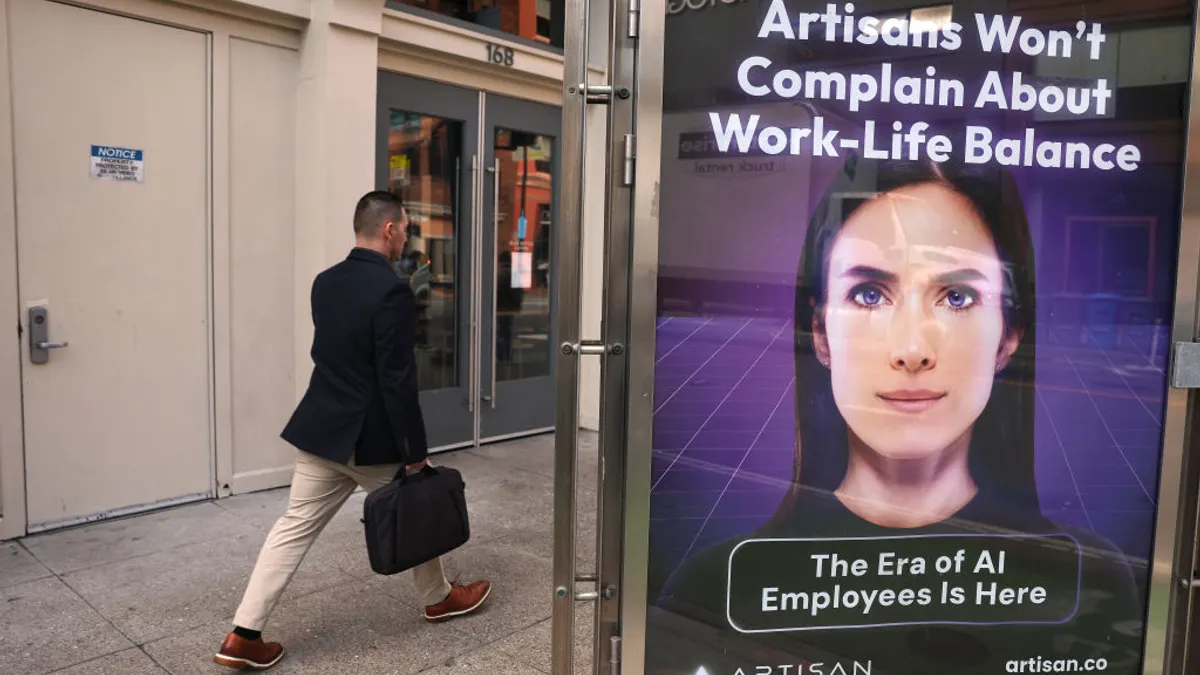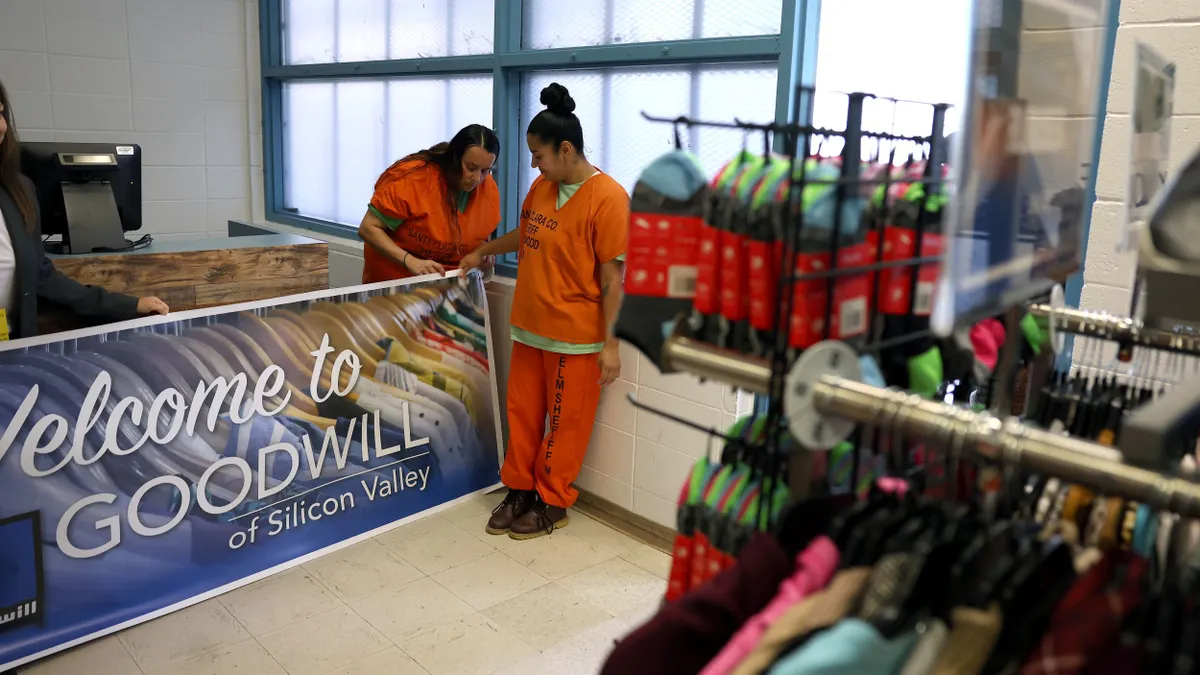WASHINGTON — Middle-skill jobs in the U.S. are eroding despite a period of economic growth and relatively low unemployment, leading to unreliable hours, declining benefits and less overall stability, Marcela Escobari, senior fellow at the Brookings Institution's Center for Universal Education, told attendees at a symposium hosted by Brookings May 21.
U.S. job growth has been on an upswing, driving unemployment statistics to lows that haven't been observed in decades, yet that hasn't necessarily translated to better jobs. That's due in part to a "winner take all" economic model that relies on the production of digital software, Escobari said, which can be produced and distributed to consumers at a marginal cost.
"The ethos that if you work hard you get ahead is very engraved in the American psyche," she said. "But the truth is that today, that's not the reality for many Americans."
Automation, too, is having an effect, creating a "bifurcation" of the labor market. Here, Escobari cited research from David Autor, professor of economics at the Massachusetts Institute of Technology, who posited that middle-skill jobs have been decreasing in both quality and quantity for the past 40 years. This has made it difficult for workers in these positions to transition to jobs that demand more advanced skills, Escobari said. Lower-skill jobs that do remain are, she bluntly stated, "crappier."
Finding a common cause
Helping low-income workers transition to new careers will be key to reversing the situation, Escobari said. "We have a tight labor market, and we've already started to see some recuperation for people coming back into the labor force, wages moving up. So there's a pressure for companies to think differently around, how are they going to get the talent that they need, but also to deal with the social consequences of the unequal world that we have been seeing."
Boise, Idaho, is a case study in industrial change. In the 1970s, Boise was home to several corporate headquarters, including for construction company Morrison Knudsen and grocer Albertson's. But 1972 marked the entrance of technology firm HP, and with it, a "nexus" of companies like semiconductor manufacturer Micron Technology. This created a demand for workers that could support the new entities, Bill Avey, VP and general manager, person systems services at HP, said during a panel.
"It was certainly R&D and knowledge workers, but it was also a lot of manufacturing," Avey said. "And over the years those manufacturing roles moved elsewhere. But the knowledge workers and R&D intensified. But along with that, our education system didn't keep up."
As a result, Boise didn't have enough talent to staff HP, let alone the needs of other employers in the city and state, Avey said. So far, it's brought in outside labor to help fill positions, but the company has also realized the need to address skills development in local schools where problems start early.
"We talk about learning to read by the third grade so that after that you can read to learn. Half of our kids don't achieve that statistic," Avey said. "And so we believe from a community perspective, it's incumbent on HP, it's incumbent on the companies, it's incumbent on the community partnerships we have to kind of raise all boats with that rising tide."
It's not too different from the approach taken by other employers. In 2011, IBM helped to build a high school to create technology career paths for low-income residents of New York City. IBM and HP are far from the only employers to venture into education, however, as universities launch partnerships with both public schools and employers to implement vocational curriculums.
Governments have a part to play in the discussion, too. Scott Jensen, director of Rhode Island's Department of Labor and Training, told the panel about the state's struggle to rebuild industries in the aftermath of losing one of its biggest. "Rhode Island's economy had gone to become the costume jewelry manufacturer for the world," Jensen said. "And that's all gone."
Under the administration of Gov. Gina Raimondo, a Democrat, Jensen said the state has prioritized workforce development. The Real Jobs Rhode Island program, for example, established grants for sector-based workforce development. The state is also working to assist companies with recruiting efforts.
"If you need something, we will try to find it, that is our job to make that happen," Jensen said. "So it's not good enough to draw up new curriculum at the community college. It's that plus, let's make a recruiting capacity that can reach into communities much better and find people who might be very talented but would maybe get missed."
Housing, public utilities also key
The supply of skilled labor, though, is only one of three fronts — together with job growth and the institutions responsible for economic mobility, like housing, schools and transport — that Escobari said policymakers and stakeholders will need to balance in order to uplift lower-wage workers.
"If we just focus on the supply side, we'll have Ph.D.s driving Uber," she said, "but if we also only focus on the growth part, eventually what we'll see is what we're seeing now: people not being able to transition to those opportunities and dropping out of the workforce, and eventually the most competitive firms not settling here."
Employers and the private sector can invest in tackling other factors as well, Jensen said. If stakeholders doubled their investment per employee, from $5,500 to $10,000 in order to provide for housing or caregiving costs, for example, that may be the difference for some workers in finding a good job.
"We need to think a little bit differently about the kind of investments we need to make and the kind of story we need to tell people, the taxpayers who are making these investments," Jensen said.
And as more jobs move to a more flexible basis, employers must also keep in mind other forms of inequality, including broadband internet access. "So the way that we think about inclusive growth is, how do you allow people to participate in a networks that make them more productive in our economy," Escobari said. "And these networks can be physical, the roads, the infrastructure. And it sounds redundant, but those are things that still we don't have in America."



















